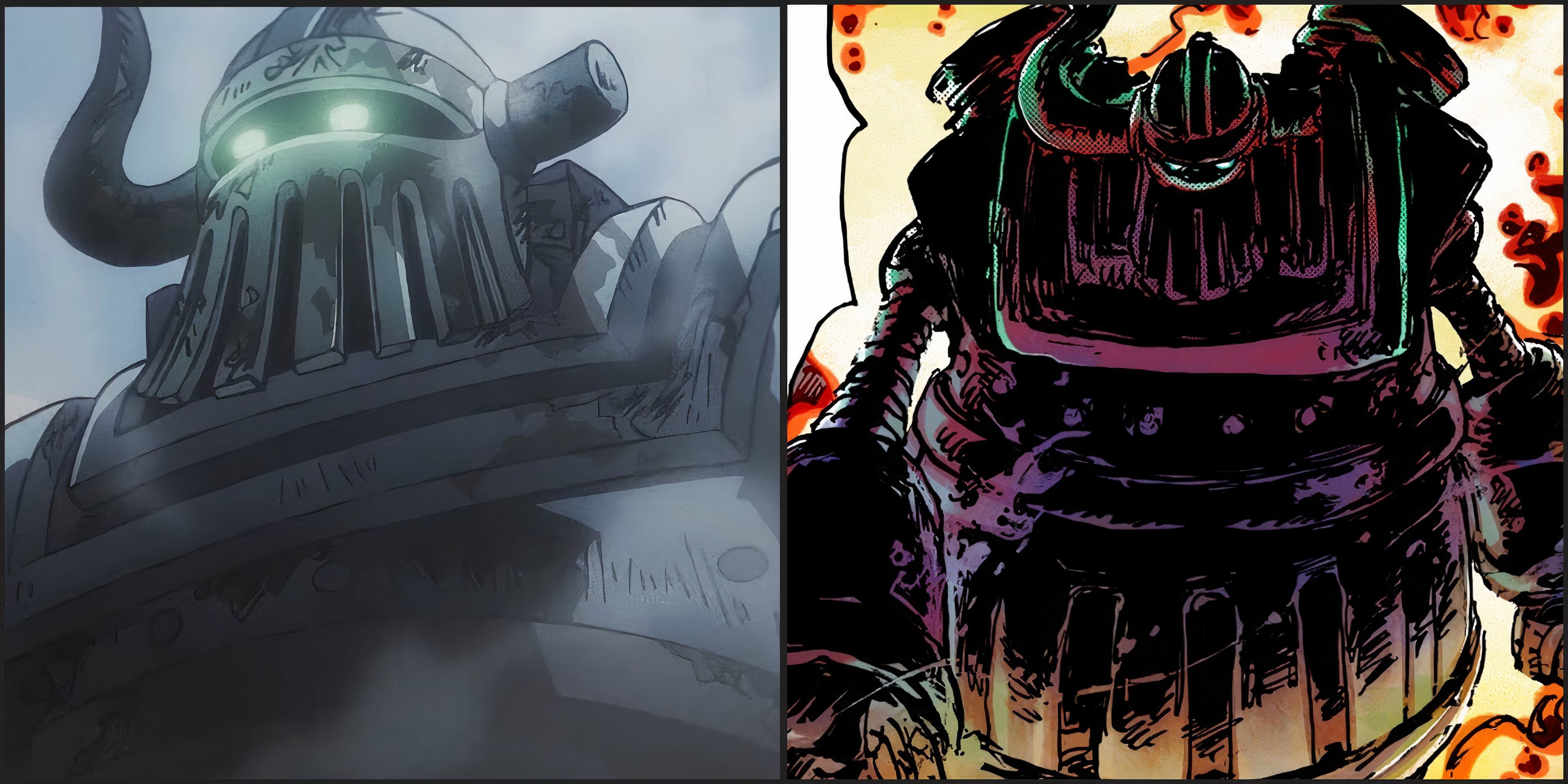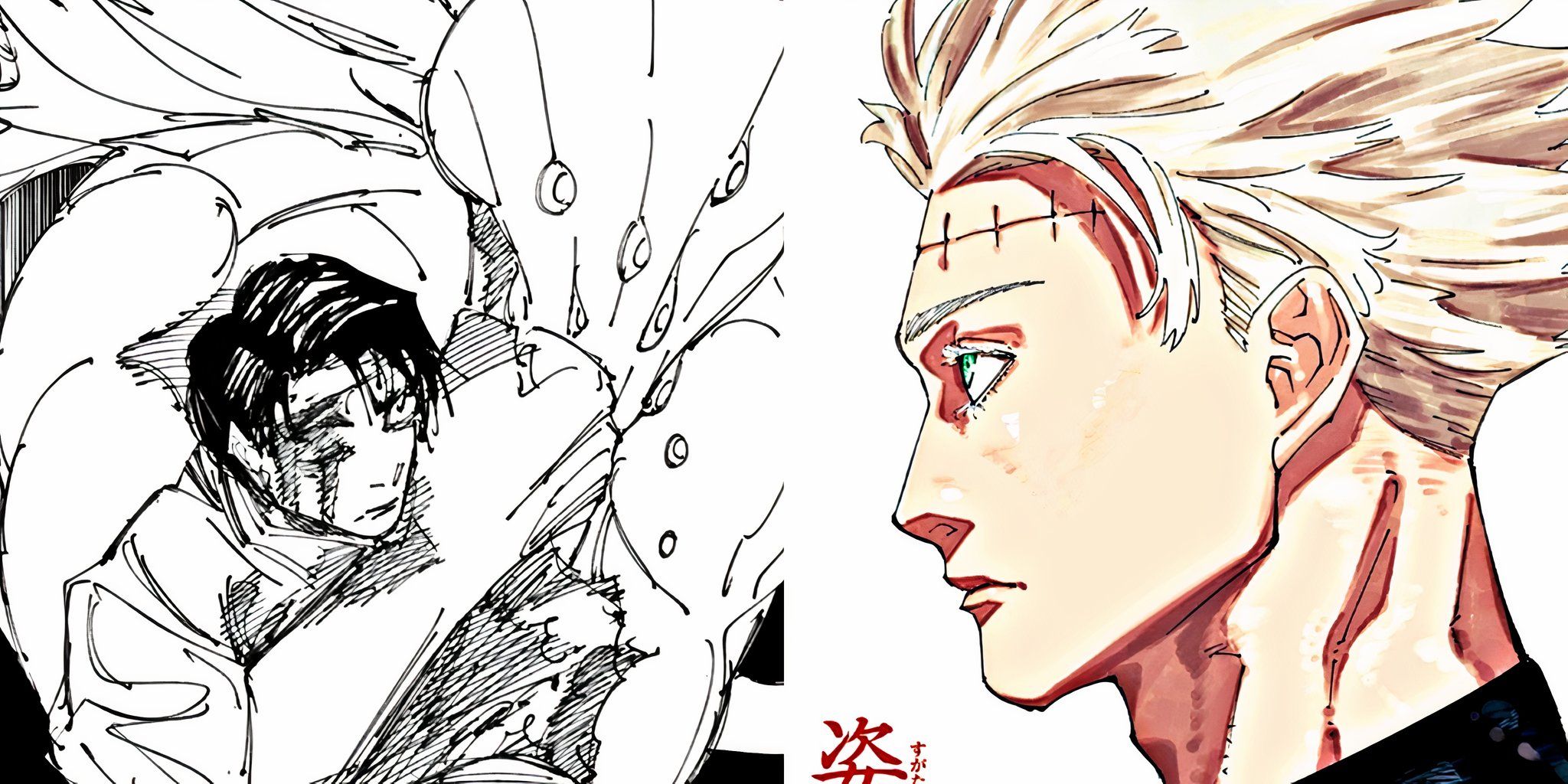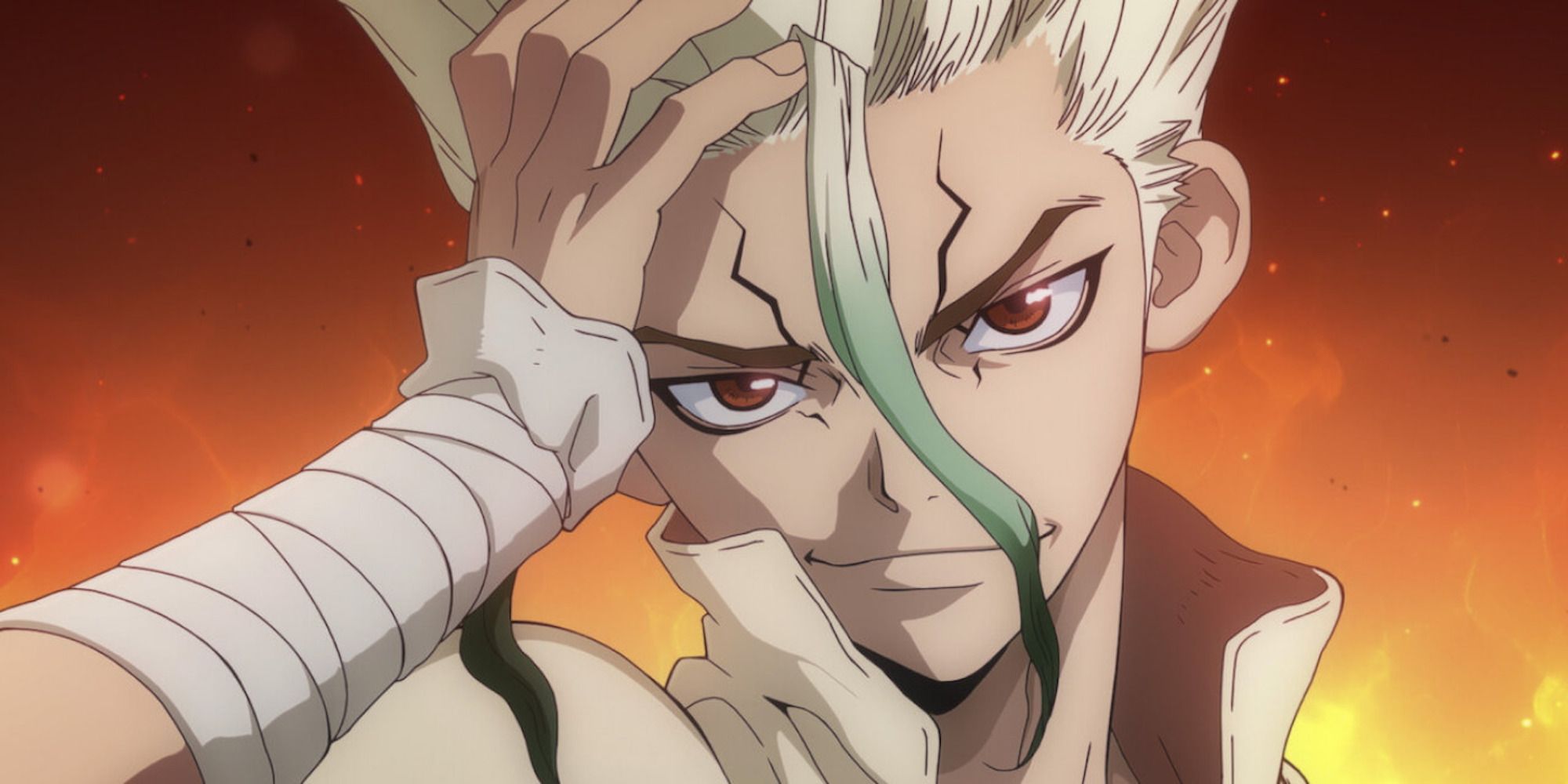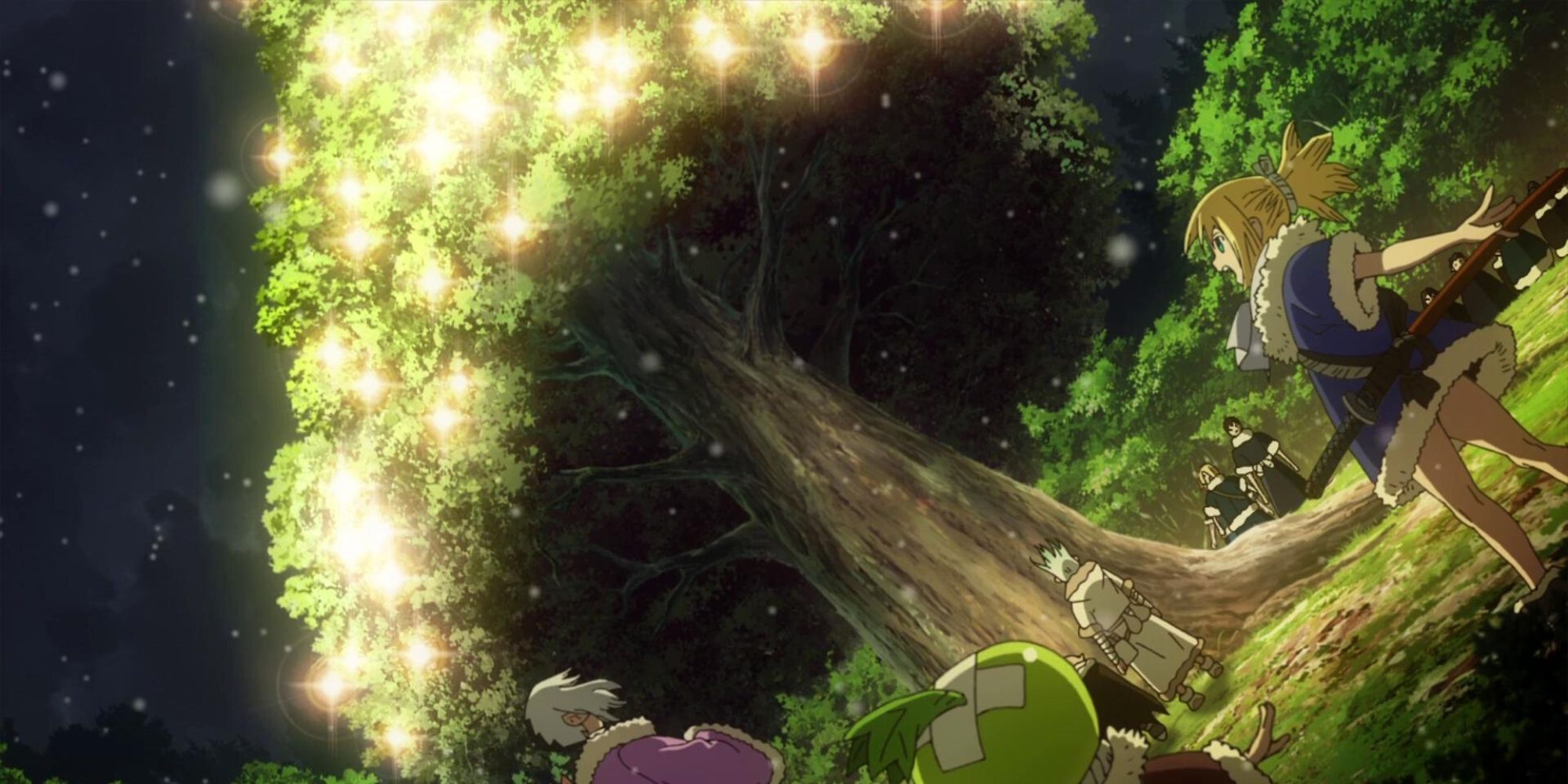Dr. Stone is one of the biggest standouts from 2019's catalogue of interesting shonen anime titles, and one of its best parts is how it marries the simplicity of the Stone Age with impossible scientific hijinks, and an interesting sci-fi plot line.
The protagonist of Dr. Stone, 15-year-old Senkū Ishigami, is a great protagonist in his own right, and is in many ways an example of an overpowered protagonist. Beyond that, however, the series has a tendency of making its character names punny in their own right, but Senkū's name connects to various elements in the Dr. Stone universe in ways that are particularly intriguing in their wordplay. So, what's the idea behind the name "Ishigami Senkū"?
Nomenclature
For this analysis to make sense, it is best to take the name as it would be presented in Japanese. So, rather than going for the obvious English first name/last name format, the family name will come first, as it would in Japanese. "Ishigami Senkū" is written 「石神千空」. The family name, "Ishigami", is written with the kanji 「石」, commonly read as "ishi" but like any kanji, its pronunciation can change drastically depending on the context. The second kanji in the family name is 「神」, pronounced "kami", modified to "-gami" as it is attached to another character. All together, "Ishigami" as a family name can be translated to something along the lines of "God of Stone", the relevance of which is obvious given the series' title; however, gods and doctors aren't the same thing. The explanation behind the series' title is related to Senkū, but not necessarily his name.
His first name is written with the kanji 「千」for "a thousand" and the kanji「空」often pronounced "kū". It commonly refers to "air", but also correlates to emptiness or vacuity. Interestingly, it is the same kanji at work in the name "Son Gokū". Senkū's name can be directly translated to "Thousand Sky", and the reason for this is because it sounds similar to the Japanese word "senku", written「先駆」, with the kanji "saki" for "destination" (the word "iku-saki" is used in conversation to refer to a destination), and the kanji 「駆」for "driver", from the full word 先駆者 "senku-sha", with the last kanji commonly being used as a suffix to denote an agent of some kind (the "doer" of the subject). All together, the word translates to "pioneer", meaning that Senkū's name is on some level, a pun for his role as the founder of the scientific new world, as a leader, and gives the name more credence as a quintessential "protagonist's name".
Birth, Death and The Fool
The "stone" aspect in Dr. Stone is a formula that has produced various character names, but within Senkū's name, it has another interesting purpose: it reflects the numbers 1 and 4, which are prominent in Dr. Stone because of various dates that come up in the course of the story. How this happens is because of homophones – words that sound similar but are spelled differently, as seen with Senkū's first name. "ishi", the word for stone most commonly invoked in the context of the series can be broken up into its phonetic parts – "i" and "shi", which sound like the readings of 「一」and 「四」, which are "one" and "four" in Japanese commonly referred to as "ichi" and "yon/shi", again, depending on context. Numerical reading in Japanese changes the words used when referring to number depending on the subject, whether the numbers are being used to count or in reference to the numbers as concepts, or even when referring to numbers as digits. Anyway, "shi" is a commonly avoided pronunciation of the kanji for four because, again, homophones. "Shi" sounds like 「死」, meaning "death", and it is for the same reason that the number seven is commonly referred to as "nana" in Japanese, rather than "shichi".
Senkū's official birthdate is January 4, 2004, which can be written (1/4/2004). If the day and month digits are read out in Japanese, using the aforementioned pronunciation, it sounds like "i-shi", which sounds like ishi, the Japanese word for stone used in "Ishigami". On top of that, Senkū is revived from petrification on April 1, 5738, 3718 years and 302 days AP. The date can be read as (4/1/5738), meaning that the day/month digits in Senkū's birth, and the date of his revival After Petrification are reversed, again invoking the numbers 1 and 4.
The April Fool's connection may be a tarot thing – The Fool is Card 0, the first of 22 cards in the Major Arcana, and is often seen as synonymous with the beginning of a hero's journey. Anyway, the repetition of 1 and 4 can be seen as evidence of the significance of those specific numbers from a story perspective as a deliberate play on words and numbers, and how it plays out in the series, particularly on the level of the aforementioned avoidance of "shi" as a pronunciation of the number 4. This happens through Senkū's misfortune, which is a regular motif throughout the series to the point where fellow characters like Gen Asagiri are able to point it out. The possible implication is that the character, Ishigami Senkū, lives up to his name as the new supposed "god of the Stone World"; a pioneer who is also fated to have bad luck?






